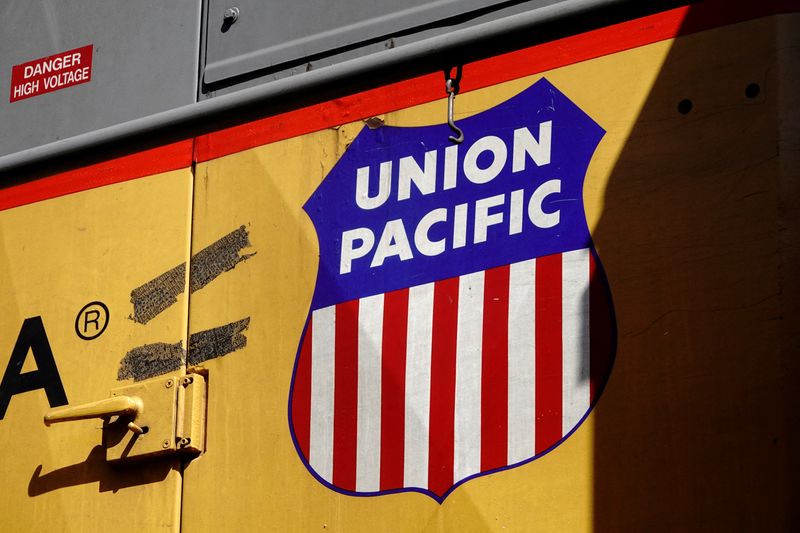By Ananta Agarwal and Amna Karimi
(Reuters) -Union Pacific is re-negotiating some contracts to account for inflationary pressures, the railroad operator said on Thursday, and warned that it was beginning to feel the impact of the ongoing strike at the Detroit Three automakers.
The company said it had taken a flexible approach to the talks as its customers also deal with similar cost inflation and weak consumer demand for goods.
"We know that we have the capability to adjust pricing with some of them," CEO Jim Vena told Reuters.
Shares were up about 3% in afternoon trading as the company topped Wall Street estimates for third-quarter profit on price hikes implemented to offset lower volumes.
Vena said the impact of the strike at the automakers was "fairly small" at this point, adding it was there on both the parts side and the finished vehicles side.
However, Union Pacific (NYSE:UNP) estimated the hit would be larger if the strike drags on. The strike by the United Auto Workers (UAW) union against Ford Motor (NYSE:F), General Motors (NYSE:GM) and Chrysler-parent Stellantis NV (NYSE:STLA) entered the 35th day on Thursday with little signs of a deal breakthrough.
Union Pacific reported a smaller-than-expected drop in earnings per share to $2.51, according to LSEG data.
Profit in the quarter was pressured by a 3% drop in freight volumes as elevated inflation and higher borrowing costs kept consumer demand for goods subdued and a jump in labor costs from efforts to improve services.
Its operating ratio, a key metric that indicates operating expenses as a percentage of revenue, rose to 63.4% from 59.9% a year earlier. The ratio has risen over the last six quarters.

"I won't sugarcoat our financials. Things cost more to make and to move, and people are buying less of them," Vena said in a letter to employees.
Quarterly operating revenue fell 10% to $5.94 billion. Analysts had estimated $5.99 billion.